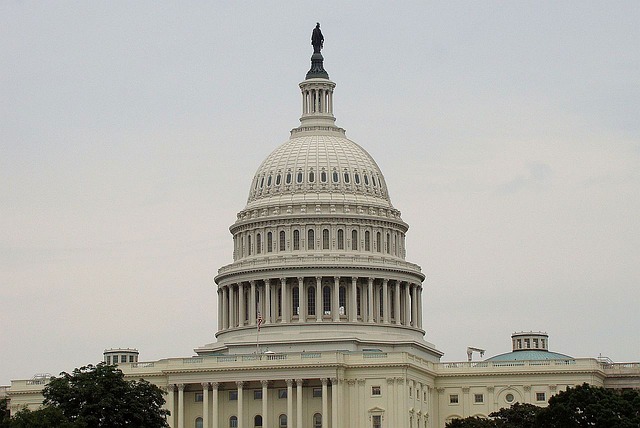2022 Defense Budget Proposal: What It Means For You

NDAA 2022: Defense Budget Proposal and 2021 Updates
The White House has requested almost $270 billion for the Department of Veterans Affairs budget for 2022. This is a 10% increase from 2021. This does include a discretionary budget request of $117.2 billion with medical care collections, and a mandatory funding request of $152.7 billion.
** 2022 Budget Update Related to Military Pay Raise **
On June 30th, the House Appropriations Committee approved the fiscal year 2022 Military Construction, Veterans Affairs, and Related Agencies bill, which includes a 2.7% pay raise for service members.
What’s in the Budget?
Specifically, the legislation invests in women’s health, mental health, and homelessness assistance.
As for construction, the bill includes funds to construct critical facilities on military installations, including:
- Family housing
- Child care centers
- Building or repairing Veterans Affairs facilities
NDAA Budget Breakdown
Included in the $117.2 billion discretionary budget request is:
- $2.2 billion for veterans homelessness programs
- $598 million for veterans suicide prevention outreach programs
- An increase of $81.5 million for the Digital GI Bill Modernization Effort to better serve veterans using their GI Bill benefits.
- An increase of $5 million for Veterans’ Clean Energy Job Training in conjunction with the Department of Labor
- An increase of $3.6 million for the VA Disability Employment Pilot Project
- A $12.9 million increase to strengthen the VAs diversity program. The VA has created a new Office of Resolution Management, Diversity and Inclusion.
- $1.4 billion for the Caregiver Support Program which would also then include all eligible veterans no matter when they served.
Congress will now need to start its deliberations over the funding amounts and final language of the spending bill, with a goal of doing so by October 1st of this year. You can read more about the budget on the VA website.
Key Takeaways from the 2021 Defense Budget
The William M. Thornberry National Defense Authorization Act for Fiscal Year 2021 (H.R. 6395), was finally passed at the onset of the New Year, January 1st, after having been vetoed by former President Trump. Both the Senate and the US House of Representatives voted to override the president’s veto, which made the bill a law.
The $740 billion bill includes pay raises for America’s service members, equipment modernizations, and some anti-money laundering provisions, among other things. Many of the topics included in the budget do not directly impact you directly, like the repurposing of nuclear warheads, but here is a break out of the sections of the law that do:
- Pay raise: The rate of monthly basic pay for members of the uniformed services are increased by 3.0 percent.
- Credit for retired pay purposes: Periods of maternity leave taken by a member of the Armed Forces reserve components shall count toward the member’s entitlement to retired pay.
- Travel and transportation allowances will now cover fares and tolls.
- Space suits: probably not real space suits, but the law has authorized a one-time uniform allowance to officers who transfer to the Space Force. This is significant since officers are not generally authorized a uniform allowance.
- Special Pay Extensions: The law allows for a one-year extension for special and bonus pays, including bonuses, hazardous duty pay, skill incentive pay, and aviation incentive pay, to name but a few.
- For officers in health professions, an increase in special and incentive pays was authorized.
- Spouse Relicensing Costs due to PCS: Reimbursements for relicensing costs caused by a PCS move are not to exceed $1,000 and not to extend past December 31, 2024.
- Expansion of assistance for Gold Star spouses and other dependents.
- Improvements to breast cancer screenings.
- Expansion of benefits available under TRICARE Extended Health Care Option Program.
- The sale of hearing aids for dependents of certain members of the Reserves.
- The inclusion of members of the Reserve Components in mental health programs of the Department of Veterans Affairs (VA).
2021 Defense Budget Summary
So, you may have already seen that your pay has gone up slightly, by exactly 3%. That’s not bad, considering the inflation rate for the year that ended January 2021 was 1.4%. That keeps you a step ahead of inflation for now. I still remember the whopping 1.0% increase from 2015!
The other big one was the Spouse Relicensing provision. Across the military, PCS moves are a part of life, and it is an enduring challenge for us military spouses to maintain our employability with each move. The new law authorizes up to $1,000 per instance of relicensing caused by a PCS move. The program only lasts, as of now, until the end of 2024. So either PCS moves will go away, or they’ll have to extend the provision before that deadline.
Another provision we are watching closely is the TRICARE extension to our dependents who are over eighteen years of age. In light of the pandemic, health care for our young adults has become a pressing issue. This provision would extend the TRICARE coverage, at no cost, to dependents until age 26, which is similar to the provisions from the Affordable Care Act.
As specifics become available, we will report them further!
(Image taken by Spc. Jessica Scott, courtesy of the US Army)
RELATED:
- Military Benefits Changes for 2021
- Spouses Reimbursed For Licensing & Certification Fees
- Nursing Students: Paid VA Nurse Residency
- Top Podcasts for Military, Veterans and Their Families
- Military Families Lose Almost $5,000 Per PCS Move
- PCS Resources and Support for Military Moves
- Payback Deadline for Deferred Social Security Tax Extended


